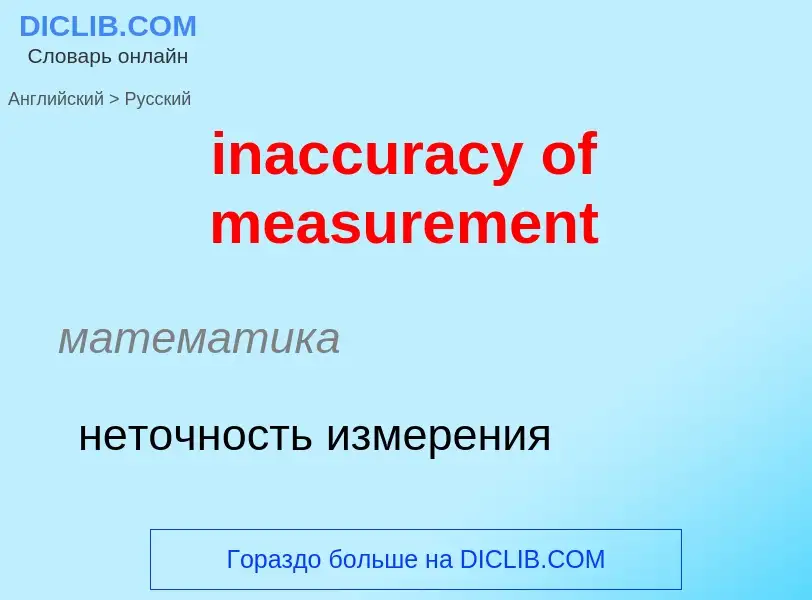Translation and analysis of words by ChatGPT artificial intelligence
On this page you can get a detailed analysis of a word or phrase, produced by the best artificial intelligence technology to date:
- how the word is used
- frequency of use
- it is used more often in oral or written speech
- word translation options
- usage examples (several phrases with translation)
- etymology
inaccuracy of measurement - translation to russian
математика
неточность измерения
общая лексика
погрешность измерения
Definition
.
Wikipedia
In quantum mechanics, the measurement problem is the problem of how, or whether, wave function collapse occurs. The inability to observe such a collapse directly has given rise to different interpretations of quantum mechanics and poses a key set of questions that each interpretation must answer.
The wave function in quantum mechanics evolves deterministically according to the Schrödinger equation as a linear superposition of different states. However, actual measurements always find the physical system in a definite state. Any future evolution of the wave function is based on the state the system was discovered to be in when the measurement was made, meaning that the measurement "did something" to the system that is not obviously a consequence of Schrödinger evolution. The measurement problem is describing what that "something" is, how a superposition of many possible values becomes a single measured value.
To express matters differently (paraphrasing Steven Weinberg), the Schrödinger wave equation determines the wave function at any later time. If observers and their measuring apparatus are themselves described by a deterministic wave function, why can we not predict precise results for measurements, but only probabilities? As a general question: How can one establish a correspondence between quantum reality and classical reality?

